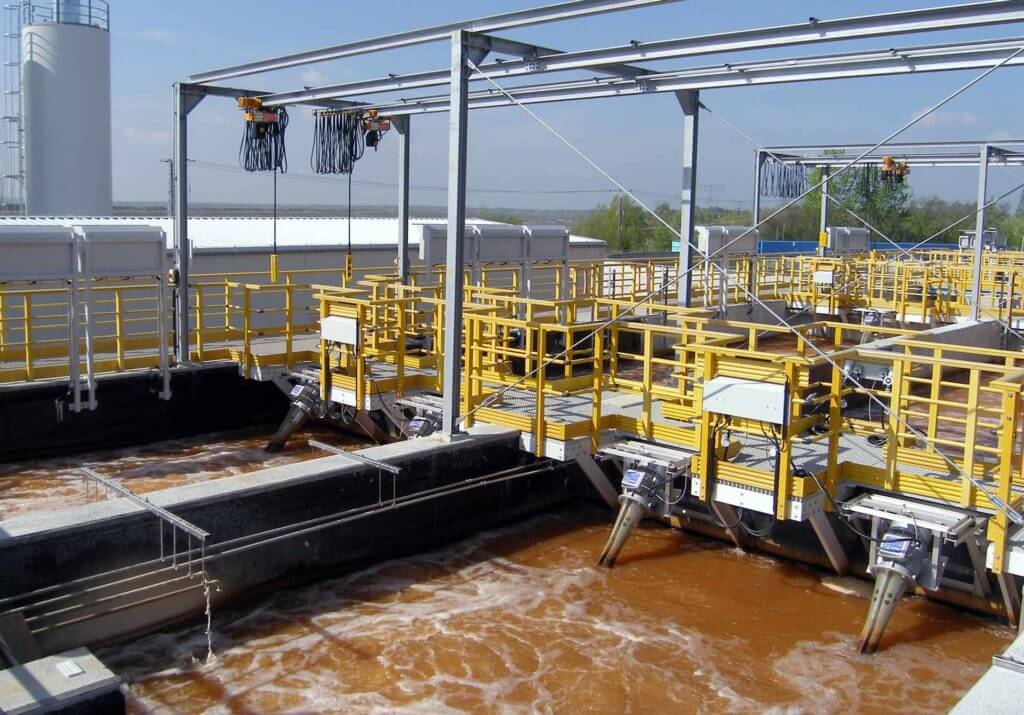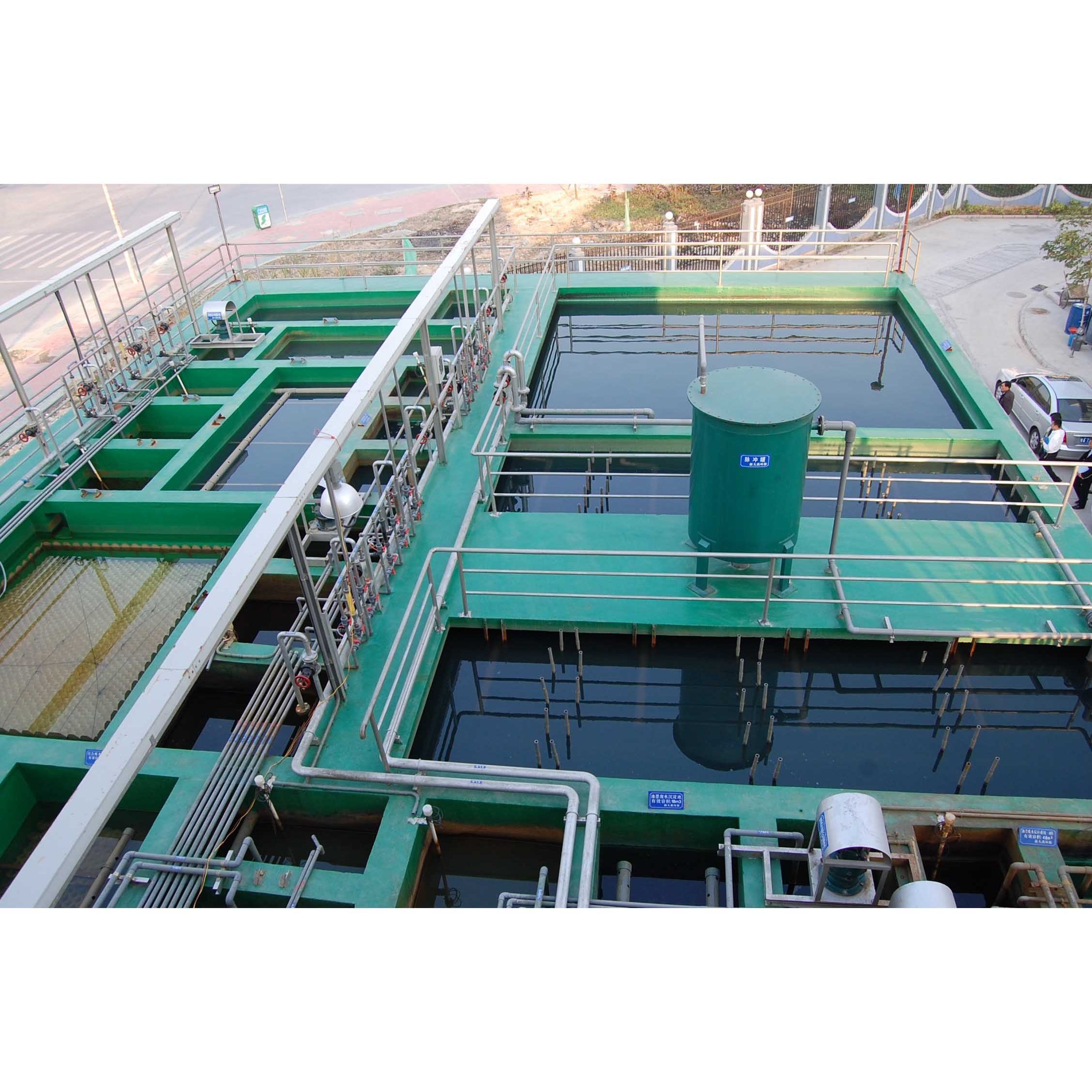Industrial Waste Water Treatment-- Lasting Solutions for Industrial Water Administration
Industrial Waste Water Treatment-- Lasting Solutions for Industrial Water Administration
Blog Article
Difficulties and Solutions in Hazardous Waste Water Treatment
The treatment of industrial wastewater presents a complex variety of challenges, ranging from strict regulatory conformity to the ins and outs of cost monitoring and technical constraints. The irregularity in waste structure better makes complex the efficiency of standard therapy approaches, frequently resulting in intensified operational expenditures.
Regulatory Compliance Difficulties
How can industrial facilities browse the complicated landscape of governing conformity in wastewater therapy? The regulatory framework regulating wastewater administration is multifaceted, often varying by jurisdiction and type of market.
To properly manage these conformity obstacles, facilities must execute robust surveillance and reporting systems that guarantee real-time information collection and analysis. Routine audits and risk analyses can determine potential compliance spaces, enabling proactive adjustments in treatment procedures. Staff member training programs focusing on governing knowledge and finest methods are vital to cultivate a society of compliance within the organization.
Furthermore, involving with regulatory companies can offer useful insights and clear up uncertain policies. Facilities might additionally gain from talking to ecological experts that focus on wastewater treatment conformity, making sure that they stay abreast of evolving policies. By taking on these techniques, industrial centers can not only satisfy compliance requirements yet also improve their functional effectiveness and ecological stewardship.
Price and Financial Obstacles
Navigating governing conformity in wastewater treatment commonly offers significant financial challenges for commercial facilities. The expenses connected with applying necessary treatment modern technologies, preserving conformity with strict policies, and handling operational expenditures can be intimidating. Several organizations deal with high initial resources expenses for the building and construction or upgrading of wastewater treatment plants, which may stress spending plans, especially for medium-sized and tiny ventures.
Furthermore, ongoing operational expenses, consisting of chemical, upkeep, and labor inputs, add to the monetary burden. The changability of changing energy costs and the prospective demand for added financial investments to fulfill progressing policies aggravate these economic pressures. In many situations, the absence of monetary incentives or support from federal government bodies makes it a lot more challenging for companies to justify financial investments in innovative therapy systems.
Furthermore, the economic feasibility of wastewater treatment options is often questioned, especially for sectors with limited profit margins. Consequently, it is crucial for commercial facilities to check out cost-effective approaches, such as taking on cutting-edge financing choices, taking part in collaborations, and leveraging emerging technologies that can aid alleviate these economic barriers while making certain compliance with ecological requirements.

Technological Limitations
Many technological restrictions impede the performance of commercial wastewater therapy procedures. One considerable obstacle is the insufficiency of existing therapy technologies to address complex impurities. Numerous traditional techniques, such as turned on sludge and chemical rainfall, struggle with the elimination of arising toxins, including microplastics and pharmaceuticals. This limitation typically results in the discharge of inadequately dealt with water, which can have harmful ecological effects.
Furthermore, the scalability of treatment modern technologies postures an obstacle. While some innovative approaches, like membrane purification or innovative oxidation, show pledge in regulated settings, their application on a larger you could check here range can be excessively pricey and practically tough. Maintenance and functional complexities additionally complicate the fostering of these systems, especially for smaller sized markets with restricted technical knowledge.
The integration of real-time surveillance technologies additionally remains not enough in several therapy centers. Without reliable surveillance systems, operators can not appropriately examine therapy performance or spot potential failings, causing inconsistent effluent click top quality. Dealing with these technological limitations with research and development, along with financial investment in cutting-edge remedies, is essential for improving the efficiency of industrial wastewater treatment and making certain governing conformity.
Irregularity in Waste Structure
In the world of industrial wastewater treatment, the variability in waste make-up provides an awesome difficulty. Industries produce wastewater with diverse characteristics, influenced by aspects such as production procedures, raw materials, and operational techniques. This diversification complicates the treatment procedure, as standard systems often battle to efficiently resolve the vast array of pollutants existing.
For instance, wastewater from food handling might consist of high levels of natural issue, while effluents from chemical production can include harmful substances and hefty steels. This variance requires adaptable treatment approaches to make sure compliance with ecological regulations and shield public health and wellness. Additionally, fluctuations in waste composition can take place gradually, influenced by modifications in manufacturing routines, upkeep activities, or the introduction of brand-new products.

Innovative Therapy Solutions
Innovative treatment remedies are vital for addressing the intricacies of industrial wastewater administration. Typical techniques usually fall brief in effectively eliminating a variety of impurities, particularly in centers with varied effluent streams. Recent improvements concentrate on integrating innovative modern technologies to enhance therapy performance and sustainability.
One promising technique is making use of advanced oxidation processes (AOPs), which take advantage of effective oxidants to degrade organic contaminants. AOPs, consisting of photocatalysis and ozonation, can considerably minimize poisonous substances you could try these out and improve effluent high quality. Furthermore, membrane layer bioreactor (MBR) modern technology has acquired traction, integrating organic therapy with membrane layer filtration, leading to high-grade effluent and reduced footprint.
One more ingenious option is the execution of source recuperation systems. Techniques like anaerobic digestion not only treat wastewater but likewise create biogas, which can be taken advantage of as an eco-friendly power resource. The fostering of man-made intelligence and device knowing models can maximize therapy processes by predicting variations in wastewater make-up, consequently boosting functional effectiveness.
These innovative remedies not just address regulative compliance yet likewise promote ecological sustainability, leading the way for a more resistant and effective commercial ecological community.
Verdict
In verdict, addressing the difficulties of commercial wastewater therapy requires a multifaceted technique that incorporates regulatory compliance, expense administration, and technical innovations. A commitment to continuous enhancement in treatment methods will inevitably add to the reliable management of industrial wastewater and environmental protection.
The treatment of industrial wastewater presents a multifaceted range of difficulties, ranging from rigid regulative conformity to the ins and outs of price administration and technical constraints. Industrial Waste Water Treatment.Browsing governing conformity in wastewater therapy commonly offers substantial economic obstacles for commercial centers. Attending to these technical restrictions with research study and advancement, alongside investment in innovative options, is essential for enhancing the efficiency of industrial wastewater therapy and making certain regulatory compliance
Wastewater therapy centers have to invest in durable surveillance systems and adaptable therapy innovations capable of accommodating differing influent attributes.In conclusion, addressing the obstacles of commercial wastewater treatment calls for a diverse method that integrates governing compliance, price administration, and technological advancements.
Report this page